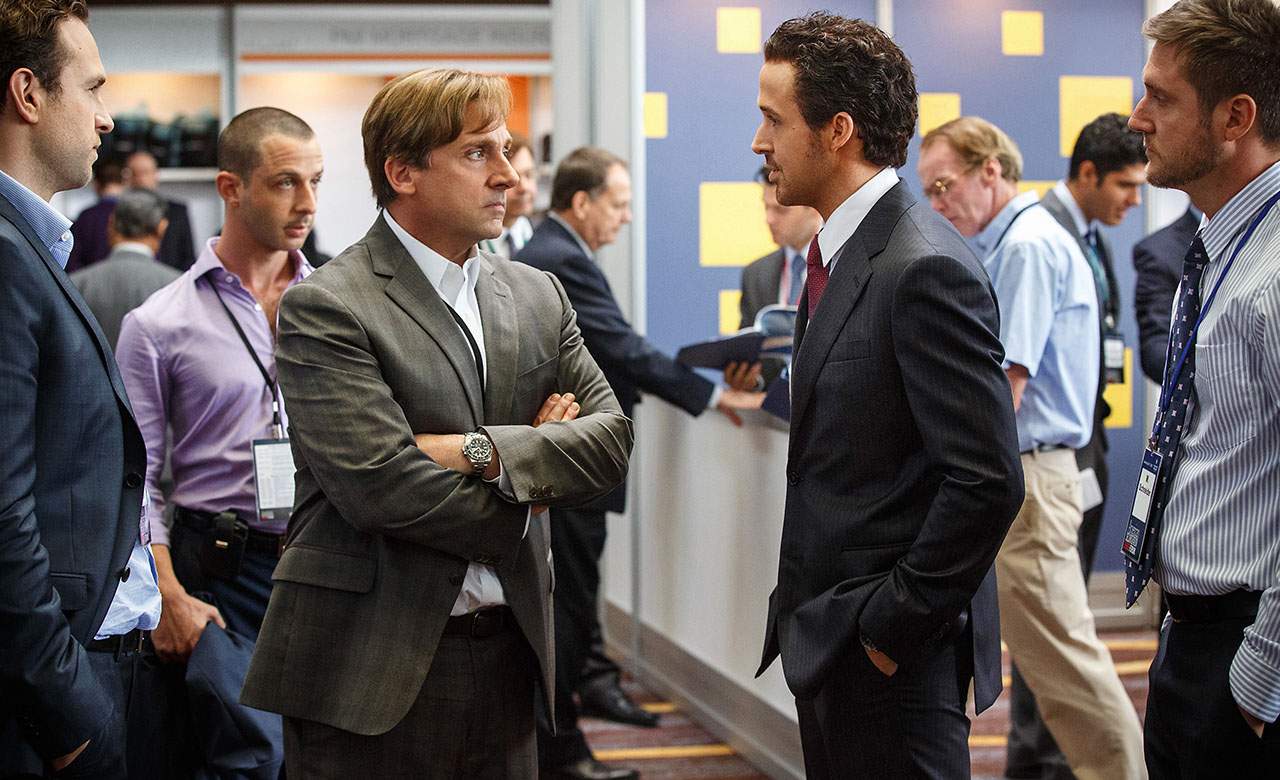The Big Short
This on-point comedy about the global financial crisis is equal parts funny and furious.
Overview
When it happened, the global financial crisis wasn't funny, and frankly it still isn't. That The Big Short manages to find humour amidst the ruins is a credit to writer-director Adam McKay — even if it is a very different brand from his usual shtick, seen in Will Ferrell flicks Anchorman, Step Brothers and The Other Guys. "What else can we do but laugh?", the film asks, tell-it-like-it-is style. It's a brand of humour informed by outrage: horrified at what happened, determined to explain it and furious that little has changed.
That air of impassioned incredulity suits the facts the feature concerns itself with, namely the bubble in the U.S. housing and mortgage market that very few people saw coming. It also suits the source material, a non-fiction book of the same name by Moneyball author Michael Lewis. If you're still not certain how such a film could garner laughs, that's understandable. In telling a true tale that still inspires disbelief — and sifts through some complex economic concepts in the process — The Big Short benefits from McKay's savvy stylistic choices.
Accordingly, when viewers meet the rare folks who thought something was wrong prior to 2008, they're not just following a straightforward narrative. Rather, they're switching between larger-than-life players, and listening to knowing narration by Ryan Gosling in character. In between, celebrities playing themselves help break down the complicated economic jargon, while the audience is given a glimpse of society's obsession with wealth and excess through rapid, infomercial-like montages.
Taken together, it paints a slick, cynical, at times farcical picture, though the details themselves remain potent. Dr Michael Burry (Christian Bale) first notices the potential for the bubble to burst and decides to bet against the market by buying credit default swaps, something that money-hungry bankers had to create because no one had asked for anything like them before. Deutsche Bank trader Jared Vennett (Ryan Gosling) starts shopping around the same products, convincing crusading hedge fund manager Mark Baum (Steve Carrell) that a collapse is imminent. Meanwhile, up-and-comers Charlie Geller (John Magaro) and Jamie Shipley (Finn Wittrock) are trying to move their garage-operated fund into the big leagues when they get wind of the situation.
As the characters wait for the market to topple over, McKay delves into the shady practices that brought about such a precarious scenario. His sly tone and smart approach to the topic lays the circumstances bare in accessible terms, while making his anger perfectly clear. It's the closest a film can get to simultaneously educating, entertaining and shouting at its audience, and it makes for highly compelling viewing.
The high-profile cast — which also includes Brad Pitt as a retired banker pal of Charlie and Jamie — are further weapons in McKay's arsenal. In fact, so skilled are their efforts that you might not grasp the movie's biggest joke until the end. Burry, Vennett, Baum and company might be the film's protagonists, but they're just as immersed in the fiscal mess as everyone else. In a situation where there can be no winners, they're the sympathetic parties only because they know that that's the case.





